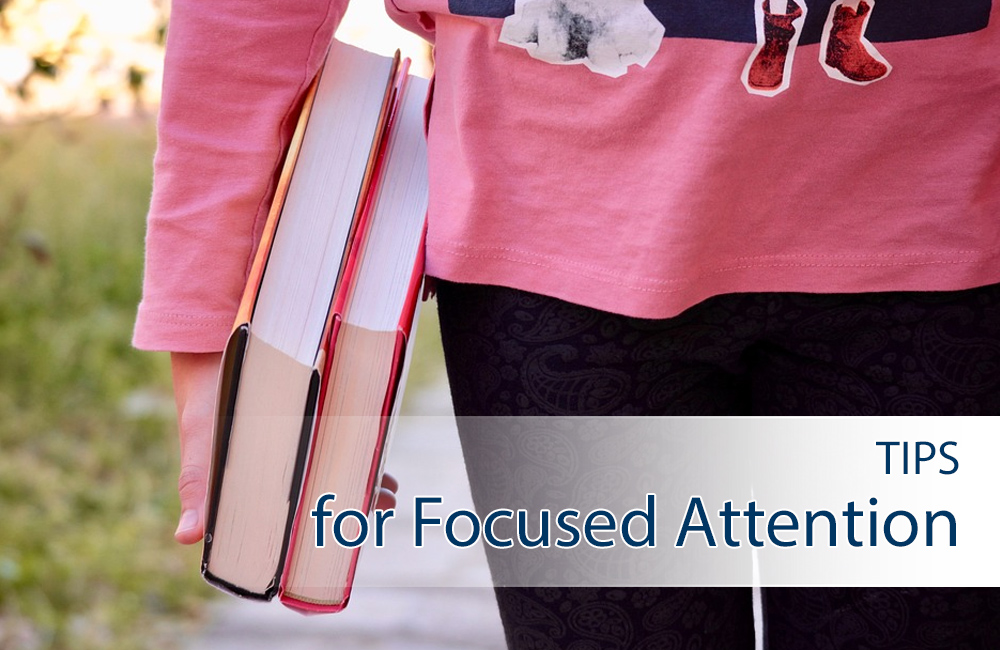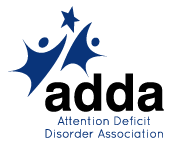Tips for Focused Attention
Paying attention is more difficult today than at any other time in history. Why is it so important to learn to focus our attention? Research shows that if students don’t learn how to concentrate, they will have difficulties in most areas of life. According to Daniel Goleman’s book Focus: The Hidden Driver of Excellence, this could impair other skills as well. The brain is the last organ to reach maturity. It continues growing until the mid-20s. That’s is after most of us have finished college. When students don’t build up the neural circuitry needed for focused attention, they may have issues controlling their emotions and being empathic. The circuitry for focused attention is identical to the circuitry for managing emotions. Goleman says,
“The attentional circuitry needs to have the experience of sustained episodes of concentration — reading the text, understanding and listening to what the teacher is saying — in order to build the mental models that create someone who is well educated. The pulls away from that mean that we have to become more intentional about teaching kids.”
Visually distracted by other people and actions. Solutions may include:
- In school make sure your child in not seated next to doors or windows.
- At home, creating a distraction free (as possible) zone for homework doing.
- Using a timer
Auditory distracted by talking, or other noises. Solutions may include:
- Wearing ear plugs,
- Using earbuds to listen to a playlist
- Try Brain FM or Focus@will
Fidgetiness can be distracting. Solutions may include:
- Walking around while studying, standing in the back of the class, standing at a standing desk, use a disking disk
- Fidget toys allow small controlled movements that don’t disrupt the class but allow a small break for the student using it
- Being active while studying/reading by taking notes, highlighting or underlining what is most important
What a short attention span depends on your age. On average, children/teens can only pay attention for 2-5 minute per year old. So your 12-year-old can only pay attention for 24 to 60 minutes. Add in ADHD, anxiety or anything emotional or physical that may affect a person and the result will be a lowered attention span. Solutions may include:
- Doing work in short intense periods of time until attention wanes then shift to another subject. Shifting is not multitasking. The student may need to shift back to a task that was not finished before his attention waned.
- Doing work in timed sections then taking a short break (5-10 minutes).
Becoming frustrated can up distracting. Now the student is paying attention to how he feels. If your child/teen is always finding ways to get out of doing work.
- Ask him to rate how challenging the task is on a scale from 1-10.
- Try breaking helping him, break it down into smaller chunks.
Teach self-monitoring to help with distractions before they occur:
- Help your student become aware of the things that distract her. If it is a phone, she should give it to you until she is finished. If it is the computer but homework is online, install a media blocker.
- With time and practice, she’ll get to know what being distracted feels like, and will recognize when her attention is drifting so she can employ one of the above tips.
- Everyone can benefit from positive affirmations. Just saying with a positive attitude “I will be focused on my homework today’ will help it become true. But not overnight!
- Use timers
- Use a product like Revibe, which will give a reminder to stay focused.
Other tips:
- Try playing fun memory games which will help hone focus.
- Encourage your student to talk out loud while studying. It forces students to focus on the task at hand when they have to find the right words about the subject.
- Reading out loud or listening to a book allows auditory learners to get more of the information into their brain. Repeated listening will help.
- Practice mindfulness which is proven to help focus.
- Take time off of everything digital daily.
- Get the right dosage of medication. Studies show nothing improves ADHD symptoms like medication. Talk to your child/teen’s doctor.
- Spend time outside. Recent studies have linked spending time outside with improvements in concentration.

Big Bang Coaching, LLC provides coaching for the neurodiverse.






